Don't wanna be here? Send us removal request.
Text
Urinary Tract Infection | Best Urologist Bhopal
Introduction
Urinary tract infection (UTI) is a type of infection that can occur in any part of the urinary system. This includes the kidneys, ureters, bladder, and urethra. UTI is more common in women than men, and it’s estimated that about 50% of women will experience at least one UTI during their lifetime.
There are many different factors that can contribute to a UTI, but the most common cause is bacteria that enters the urinary tract through the urethra and begins to multiply. This can happen when there is poor hygiene or when sexual intercourse introduces new bacteria into the urinary system. Other factors that may increase your risk of UTI include pregnancy, diabetes, and a history of UTIs.

If you think you might have a UTI, it’s important to see a best urologist Bhopal so that you can get treated before the infection spreads to your kidneys. Treatment for a UTI typically involves antibiotics, and most people will start feeling better within a few days of beginning treatment.
What is a urinary tract infection?
A urinary tract infection (UTI) is an infection in any part of your urinary system — your kidneys, ureters, bladder, and urethra. Most infections involve the lower urinary tract — the bladder and the urethra. Women are at greater risk than men for developing a UTI because of their anatomy.
The main symptom of a UTI is a strong, persistent urge to urinate. You may also have cloudy urine, strong-smelling urine, and/or pain or burning with urination. If the infection spreads to your kidneys, you may experience back pain, nausea, vomiting, or fever.
UTIs are usually treated with antibiotics. It’s important to finish all of the medication as prescribed even if your symptoms go away. If left untreated, a UTI can lead to serious kidney damage.
Causes of urinary tract infection
There are a number of things that can cause urinary tract infections, but the most common cause is bacteria. Bacteria can enter the bladder through the urethra and begin to multiply. This can happen when the area around the urethra is not cleaned properly, or if there is already an infection in another part of the body that spreads to the bladder. Other causes of urinary tract infections include:
-Dehydration: When your body doesn’t have enough fluids, your urine becomes more concentrated and provides a good environment for bacteria to grow.
-Certain medications: Some medications, such as diuretics, can increase your risk of developing a urinary tract infection.
-Kidney stones: Stones in the kidney can block the flow of urine and trap bacteria in the urinary tract.
-Pregnancy: The growing uterus puts pressure on the bladder, which can make it difficult to fully empty your bladder and increases your risk of developing a urinary tract infection.
Symptoms of urinary tract infection
A urinary tract infection (UTI) is an infection that can occur anywhere along the urinary tract, which includes the kidneys, ureters, bladder, and urethra. While UTIs are more common in women than men, anyone can develop a UTI.
The most common symptom of a UTI is a burning sensation when urinating. Other symptoms may include:
- Frequent urge to urinate
- Pain or pressure in the lower abdomen
- Blood in the urine
- cloudy or foul-smelling urine
- pelvic pain (in women)
Treatment of urinary tract infection
Urinary tract infection (UTI) is a common infection that can affect women of all ages. The symptoms of a UTI can vary from person to person, but often include a burning sensation when urinating, the need to urinate frequently, and cloudy or bloody urine.
If you think you might have a UTI, it's important to see your nephrologist in Bhopal so that you can get started on the right treatment. In most cases, UTIs can be treated with antibiotics. However, some women may require more aggressive treatment, such as hospitalization and intravenous antibiotics.
If you have recurrent UTIs, your healthcare provider may recommend prophylactic antibiotics to help prevent future infections. Additionally, there are certain lifestyle changes that can help reduce your risk of developing a UTI, such as drinking plenty of fluids and urinating promptly after sexual intercourse.
Prevention of urinary tract infection
Urinary tract infections (UTIs) are preventable. There are many things you can do to reduce your risk of getting a UTI, including:
-Drinking plenty of fluids. Drinking water helps flush out bacteria that may cause UTIs.
-Urinating frequently. urinating helps expel bacteria from the urinary tract.
-Wiping from front to back after using the restroom. This helps prevent bacteria from the anus from spreading to the urethra.
-Avoiding diaphragms and spermicide for birth control. These can increase the risk of UTIs.
-Choosing shower over baths. Baths can increase the risk of UTIs because they can introduce new bacteria into the urinary tract.
Conclusion
Urinary tract infections are a common problem for women, but there are ways to prevent them. The most important thing is to drink plenty of fluids and urinate frequently to flush out the bacteria that can cause an infection. You should also avoid using harsh soaps or douching, which can irritate the delicate tissues in the urinary tract. If you do get an infection, it's important to see a best kidney doctor Bhopal right away so that it can be treated before it causes serious problems.
#Kidney Doctor In Bhopal#Kidney Stone Surgeon Bhopal#Kidney Transplant Bhopal#Kidney Stone Surgeon Near Me Bhopal#Kidney Specialist Bhopal#Nephrologist In Bhopal#Best Urologist Bhopal
0 notes
Text
Why Senior Consultant Urologist, Dr. Santosh Agrawal Is One Of The Best Urologist In Bhopal
Dr. Santosh Agrawal is one of the best urologist Bhopal that can be trusted for all your urological needs. Dr. Santosh Agrawal is a distinguished Consultant Urologist and Head of Department and Chief Kidney Transplant Surgeon at Bansal Hospital Bhopal. He has performed more than 150 Kidney Transplants, over 1,000 Cysts, Bladder Cancer Screenings, Saline Scavenging Techniques for Radical Prostatectomy, Vocal Cord Surgery, Congenital Anomalies of the Urethra and Penile Surgery.
If you are looking for a reliable and experienced urologist in Bhopal, then you can book an appointment with Dr. Sanotsh Agrawal at his clinic or hospital.

Experience
As a senior consultant urologist, Dr. Santosh Agrawal has over 15 years of experience in the field of urology. He has worked at some of the best hospitals in Bhopal and has gained a vast amount of knowledge and experience in the field. He is an expert in treating various urological conditions such as urinary tract infections, kidney stones, prostate problems, male infertility, and erectile dysfunction. He has also gained extensive experience in performing surgeries such as prostatectomy, cystectomy, and ureteric stenting. Dr. Santosh Agrawal is highly skilled and knowledgeable in his field and is considered to be one of the best urologists in Bhopal.
Treatment given
As a senior consultant urologist, Dr. Santosh Agrawal is one of the best urologists in Bhopal. He has been providing his patients with the highest quality of care and treatment possible.
He has successfully treated many patients with various urological conditions such as kidney stones, urinary tract infections, prostate problems, and male infertility.
Dr. Agrawal’s unique approach to patient care ensures that each patient receives individualized attention and treatment. He takes the time to get to know his patients and their medical history so that he can provide them with the most effective care possible.
His compassionate nature makes him a great doctor to consult for any urological problem. If you are looking for the nephrologist in Bhopal, look no further than Dr. Santosh Agrawal.
#Kidney Doctor In Bhopal#Kidney Stone Surgeon Bhopal#Kidney Transplant Bhopal#Kidney Stone Surgeon Near Me Bhopal#Kidney Specialist Bhopal#Nephrologist In Bhopal#Best Urologist Bhopal
0 notes
Text
All About Prostate Surgery By Urologist In Bhopal
When it comes to prostate surgery, there are a lot of things that men don’t know. And that’s understandable, because it’s not a topic that is often talked about. But it’s important to be informed about all of your options and what to expect before making a decision about your treatment. In this blog post, we will explore what you need to know about prostate surgery. We will discuss the different types of surgery, the risks and side effects, and the recovery process. We will also provide some resources for further reading.
What is prostate surgery?
Prostate surgery is a common treatment for prostate cancer. The prostate is a small gland that makes semen and is located in front of the rectum. The most common type of prostate surgery is a radical prostatectomy, which involves removing the entire prostate gland and some of the tissue around it. This type of surgery usually requires a hospital stay of several days. Other types of prostate surgery include transurethral resection of the prostate (TURP) and laser ablation of the prostate (LAP).
What are the different types of prostate surgery?
There are four main types of prostate surgery:
1. Transurethral resection of the prostate (TURP): This is the most common type of prostate surgery. It involves removing part of the prostate through the urethra (the tube that carries urine out of the body). TURP is usually done as an outpatient procedure, which means you can go home the same day.
2. Open prostatectomy: This type of surgery involves making an incision in your lower abdomen and removing the prostate through this opening. Open prostatectomy can be done as either an open or laparoscopic procedure.
3. Radical prostectomy: This is the most extensive type of prostate surgery and involves removing the entire prostate, along with surrounding tissue and lymph nodes. Radical prostectomy can be done as either an open or laparoscopic procedure.
4. Transurethral microwave thermotherapy (TUMT): This is a newer, minimally invasive treatment option for men with small- to medium-sized prostates. TUMT uses microwaves to heat and destroy tissue in the prostate.
Who is a candidate for prostate surgery?
A man with an enlarged prostate gland may be a candidate for surgery to remove the prostate. The decision to have surgery is generally made after other treatments, such as medication and watchful waiting, have failed. Surgery is also an option for men who have cancer that has spread outside the prostate.

Robotic assisted laparoscopic radical prostatectomy (RALP) is the most common type of surgery used to remove the entire prostate. This procedure is less invasive than traditional open surgery and allows for a quicker recovery. During RALP, the surgeon makes several small incisions in the lower abdomen and inserts a thin tube with a camera attached (laparoscope) through one of these incisions. The surgeon then uses robotic arms to remove the prostate.
If you are considering surgery to remove your prostate, it is important to discuss all of your options with your best urologist Bhopal. You should also be aware of the potential risks and complications associated with any surgical procedure.
What are the risks and complications of prostate surgery?
There are a number of risks and complications associated with prostate surgery, which can include erectile dysfunction, urinary incontinence, and bowel problems. While these complications are typically not life-threatening, they can be very bothersome and have a significant impact on quality of life. In some cases, more serious complications such as infection or bleeding can occur. It is important to discuss all of the potential risks and complications with your doctor before undergoing surgery.
What are the benefits of prostate surgery?
When it comes to prostate surgery, there are a lot of things that you need to take into consideration. This includes the type of surgery that you want, the benefits of the surgery, and the risks associated with the surgery.
With any kind of surgery, there are always going to be some risks involved. However, the risks associated with prostate surgery are relatively low. The most common complications from this type of surgery are urinary incontinence and erectile dysfunction. These complications can usually be treated and are not permanent.
There are two main types of prostate surgery: radical prostatectomy and transurethral resection of the prostate (TURP). Radical prostatectomy is the more invasive of the two surgeries and involves removing the entire prostate gland. TURP is less invasive and only removes a portion of the gland. Both surgeries have their own set of risks and benefits that you will need to discuss with your doctor before making a decision.
The benefits of prostate surgery can vary depending on which type of surgery you have. For example, radical prostatectomy can offer a cure for prostate cancer if it is caught early enough. TURP can improve urinary symptoms such as frequency, urgency, and weak stream. It can also reduce the risk of urinary retention or incontinence in some cases. In addition, both types of surgeries can help to improve sexual function in some men.
Prostate surgery is not right for everyone though and you will need
How to prepare for prostate surgery
Many men dread the thought of prostate surgery, but it is often a necessary procedure to treat an enlarged prostate. If you have been diagnosed with an enlarged prostate, your doctor may recommend surgery to remove part or all of the prostate gland.
The most common type of prostate surgery is a radical prostatectomy, which involves removing the entire prostate gland and surrounding tissue. This surgery is usually performed as open surgery, meaning that the surgeon will make an incision in your lower abdomen to access the prostate. In some cases, laparoscopic surgery may be used, which involves making small incisions in your abdomen and inserting special instruments to remove the prostate.
Radical prostatectomy is a major surgery with a long recovery time. You can expect to stay in the hospital for several days after the procedure and then recover at home for several weeks. During this time, you will likely experience some urinary incontinence and sexual dysfunction. However, these side effects are usually temporary and will improve over time.
To prepare for your radical prostatectomy, you should:
-Talk to your surgeon about what to expect during and after the surgery.
-Arrange for someone to drive you home from the hospital after the procedure.
-Make sure you have someone who can help take care of you at home during your recovery.
-Stop taking any medications or supplements that could increase bleeding during surgery.
-Avoid eating or drinking anything after midnight on
Conclusion
Prostate surgery is a big decision, and one that shouldn't be taken lightly. But if you're facing prostate cancer, it may be the best option for you. Be sure to talk to your nephrologist in Bhopal about all the risks and benefits before making a decision, and don't hesitate to get a second opinion if you're unsure. With the right support team in place, you can get through this surgery and come out the other side healthy and cancer-free.
#best urologist bhopal#Nephrologist In Bhopal#Kidney Specialist Bhopal#Kidney Stone Surgeon Near Me Bhopal#Kidney Transplant Bhopal#Kidney Stone Surgeon Bhopal#Kidney Doctor In Bhopal
0 notes
Text
How to Remove Kidney Stone Without Surgery?
Kidney stones are a common problem, affecting around 6 in 10 people. They can cause severe pain and often require treatment. But there are ways to remove kidney stones without surgery, and in this article we'll explore some of the options available.
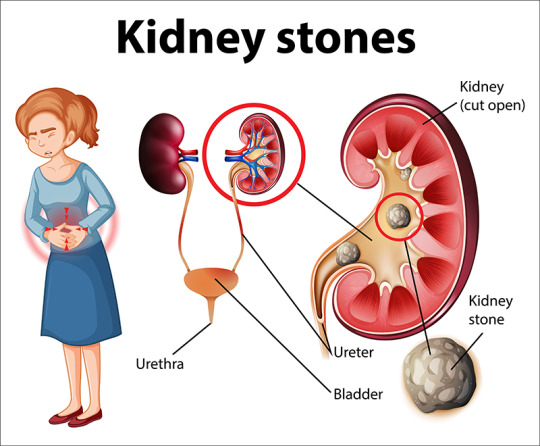
Kidney stones overview
Kidney stones are one of the most common disorders of the urinary tract. They occur when certain substances build up in the urine and form crystals. Kidney stones can be very painful and may require treatment. If you have a kidney stone, talk to your best kidney stone surgeon in bhopal about these nonsurgical treatment options.
There are several different types of kidney stones. The most common type is made of calcium. Other types include struvite, uric acid, and cystine.
Kidney stones often have no symptoms until they start to move down the ureter (the tube that carries urine from the kidney to the bladder). When this happens, they may cause:
- Severe pain in the abdomen, groin, or back
- Blood in the urine
- Nausea and vomiting
- Fever and chills
If a stone becomes stuck in the ureter, it can block the flow of urine and cause an infection. This can lead to kidney damage or failure.
What causes kidney stones?
Kidney stones are a common condition that can cause a lot of pain. They occur when there is a build-up of minerals in the kidneys, which can form into crystals. Kidney stones can be caused by many different things, including dehydration, certain medical conditions, and certain medications. Treatment for kidney stones usually involves drinking plenty of fluids and taking pain medication. In some cases, surgery may be necessary to remove the stones.
How to remove kidney stones without surgery
Kidney stones are a common problem that can cause a lot of pain and discomfort. They are usually treated with surgery, but there are ways to remove them without surgery.
There are several methods that can be used to remove kidney stones without surgery. One method is extracorporeal shock wave lithotripsy (ESWL). This involves using sound waves to break up the kidney stones. The pieces of the kidney stone are then passed through the urinary system.
Another method is ureteroscopy. This involves inserting a small scope into the urethra and then passing it through the urinary system until it reaches the kidney stone. Once the scope is in place, a small laser is used to break up the kidney stone. The pieces of the stone are then passed through the urinary system.
If you have a kidney stone, talk to your best urologist in Bhopal about these nonsurgical treatment options.
When to see a doctor for kidney stones
Kidney stones are a common problem that can be extremely painful. They occur when there is a build-up of minerals in the kidneys, which can form hard, small lumps.
There are a number of ways to treat kidney stones, but in some cases, surgery may be required. If you think you may have kidney stones, it is important to see a doctor so that they can diagnose and treat the problem.
Conclusion
If you have kidney stones, there are a number of ways to remove them without surgery. You can try natural remedies like drinking plenty of fluids, eating certain foods, and taking supplements. You can also try medical treatments like shock wave therapy or extracorporeal shock wave lithotripsy. Talk to your best nephrologist In Bhopal about which treatment is right for you.
#Kidney Doctor In Bhopal#Kidney Stone Surgeon Bhopal#Kidney Transplant Bhopal#Kidney Stone Surgeon Near Me Bhopal#Kidney Specialist Bhopal#Nephrologist In Bhopal#Best Urologist Bhopal
0 notes
Text
Pros And Cons Of Laparoscopic Urology Surgery – Best Urologist In Bhopal
Laparoscopic urology surgery is a type of minimally invasive surgery. It uses small incisions and special instruments to treat conditions of the urinary tract and reproductive organs. This surgery has many benefits, including less pain and scarring, shorter hospital stays, and quicker recoveries. If you are considering this type of surgery, be sure to consult with a laparoscopic & Best Urologist Bhopal to see if it is right for you.

Pros and cons of laparoscopic urology surgery
Laparoscopic urology surgery is a minimally invasive surgical procedure that is used to treat various urological conditions. The surgery is performed through small incisions in the abdomen and requires only a short hospital stay. Although laparoscopic urology surgery has many benefits, there are also some potential risks and side effects associated with the procedure. Here, we will discuss the pros and cons of laparoscopic urology surgery so that you can make an informed decision about whether or not this type of surgery is right for you.
PROS:
1. Minimally invasive – Laparoscopic urology surgery is much less invasive than traditional open surgery. This means that there is less pain and scarring associated with the procedure.
2. Shorter hospital stay – Because laparoscopic urology surgery is less invasive, patients usually have a shorter hospital stay following the procedure.
3. Faster recovery time – Recovery from laparoscopic urology surgery is typically quicker than recovery from traditional open surgery. Patients can usually return to their normal activities within a few weeks of the procedure.
CONS:
1. Potential risks and complications – Although laparoscopic urology surgery is generally safe,
What to expect during and after laparoscopic urology surgery
Laparoscopic urology surgery is a minimally invasive surgery used to treat various conditions of the urinary tract and reproductive organs. The surgery is performed through small incisions in the abdomen, which allows the surgeon to access the organs with special instruments.
Laparoscopic urology surgery is generally safe and effective, with a low risk of complications. Recovery from the surgery is usually quick, with most people able to return home the same day or the following day.
During laparoscopic urology surgery, the patient will be given general anesthesia to keep them asleep and pain-free during the procedure. Once anesthesia has been given, the surgeon will make small incisions in the abdomen and insert a laparoscope, a thin tube with a camera attached, into the body.
Using the laparoscope as a guide, the surgeon will then insert other instruments into the body to treat the condition being treated. In some cases, such as removing kidney stones, this can be done using lasers or other energy sources to break up the stones. In other cases, such as treating cancer, the surgeon may need to remove part or all of an organ.
Conclusion
Laparoscopic urology surgery is a minimally invasive alternative to traditional open surgery. It involves making small incisions in the abdomen and using special instruments to access the urinary tract organs. Laparoscopic urology surgery has many benefits, including shorter hospital stays, less pain, and faster recovery times. If you are considering this type of surgery, be sure to consult with a laparoscopic & nephrologist in bhopal to see if it is right for you.
#Kidney Doctor In Bhopal#Kidney Stone Surgeon Bhopal#Kidney Transplant Bhopal#Kidney Stone Surgeon Near Me Bhopal#Kidney Specialist Bhopal#Nephrologist In Bhopal#Best Urologist Bhopal
0 notes
Text
Laparoscopic Urology Surgery and Their Types – Best Urologist in Bhopal
What is laparoscopic urology surgery?
Laparoscopic urology surgery is a minimally invasive surgical procedure that is used to treat various conditions of the urinary tract and reproductive organs. This type of surgery is typically performed using a small camera known as a laparoscope, which is inserted into the body through a small incision. The surgeon then uses special instruments to perform the desired procedure. If you are considering laparoscopic urology surgery, be sure to discuss all your options with your best urologist in Bhopal to ensure that it is the best treatment option for you.
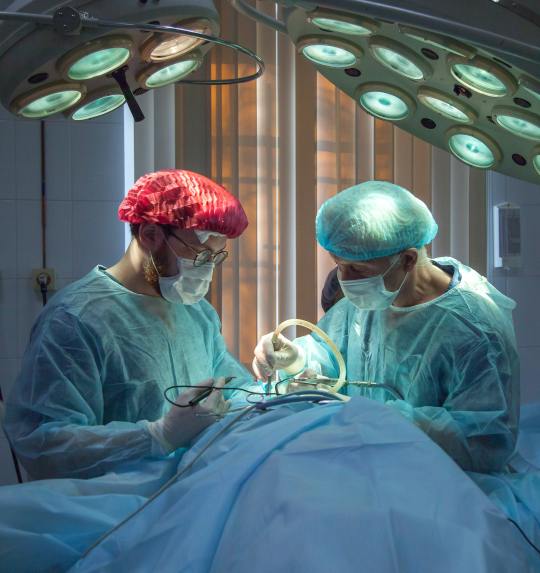
Laparoscopic urology surgery offers many benefits over traditional open surgery, including less pain, shorter hospital stays, and quicker recoveries. In addition, this type of surgery often results in better cosmetic outcomes. If you are considering laparoscopic urology surgery, be sure to discuss all your options with your best urologist in Bhopal to ensure that it is the best treatment option for you.
Different types of laparoscopic urology surgery
Different types of laparoscopic urology surgery include:
1. Laparoscopic Nephrectomy: This is a minimally invasive surgical procedure used to remove one or both kidneys. The surgeon makes small incisions in the lower abdomen and inserts a tiny camera called a laparoscope. The laparoscope allows the surgeon to see inside the abdomen and perform the surgery with small instruments.
2. Laparoscopic Pyeloplasty: This is a minimally invasive surgical procedure used to treat blockages in the urinary system. The surgeon makes small incisions in the lower abdomen and inserts a tiny camera called a laparoscope. The laparoscope allows the surgeon to see inside the abdomen and repair the blockage with small instruments.
3. Laparoscopic Prostatectomy: This is a minimally invasive surgical procedure used to remove the prostate gland. The surgeon makes small incisions in the lower abdomen and inserts a tiny camera called a laparoscope. The laparoscope allows the surgeon to see inside the abdomen and remove the prostate gland with small instruments.
4. Laparoscopic Bladder Surgery: This is a minimally invasive surgical procedure used to treat bladder problems.
If you are considering this type of surgery, be sure to consult with a laparoscopic & nephrologist in bhopal to see if it is right for you.
#Kidney Doctor In Bhopal#Kidney Stone Surgeon Bhopal#Kidney Transplant Bhopal#Kidney Stone Surgeon Near Me Bhopal#Kidney Specialist Bhopal#Nephrologist In Bhopal#Best Urologist Bhopal
0 notes
Text
Kidney Transplant Process In Hindi- Best Nephrologist In Bhopal
किडनी, शरीर के दोनों भागों में स्थित दो बीन के आकार के अंग होते हैं जो रिब केज के ठीक नीचे पाए जाते हैं , इनका मुख्य काम ख़राब उत्पादों को खून से फ़िल्टर कर के मूत्र में परिवर्तित करना है।यदि किडनी इस क्षमता को खो देती हैं तो ख़राब उत्पाद निर्मित हो सकते हैं, जो संभावित रूप से खतरनाक साबित हो सकते है इसी के साथ साथ ही जीवन के लिए खतरा पैदा कर सकते हैं। किडनी ट्रांसप्लांट के लिए Best Nephrologist In Bhopal से सलाह ले सकते हैं
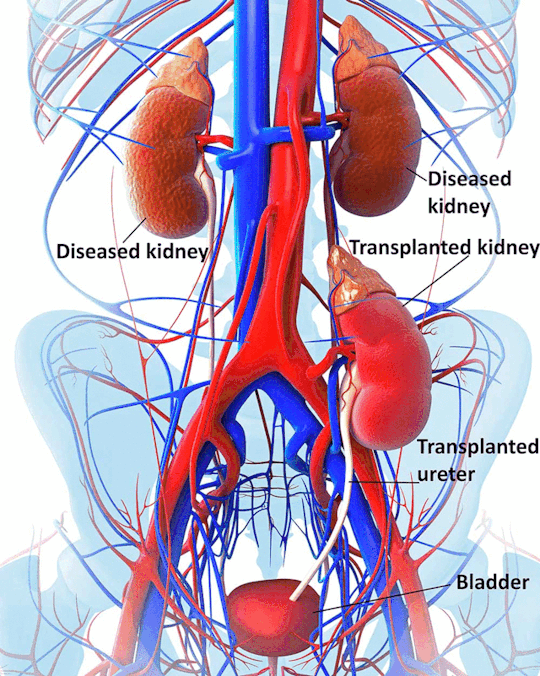
किडनी के क्रियाकलाप में कमी या हानि को एंड स्टेज क्रोनिक किडनी डिजीज या किडनी की विफलता के रूप में जाना जाता है, जो कि किडनी ट्रांसप्लांट का सबसे सामान्य कारण है।प्रत्यारोपण के समय पर नई किडनी पेट के निचले हिस्से में लगाई जाती है। नई किडनी की रक्तवाहिकाएं पेट के निचले भाग में पाई जाने वाली रक्त वाहिकाओं से जोड़ी जाती हैं। नई किडनी की मूत्रवाहिका को मूत्राशय से जोड़ दिया जाता है,एक किडनी ट्रांसप्लांट सर्जरी सामान्य रूप से तीन से चार घंटे में की जाती है। किडनी द्वारा की जाने वाली क्रियाओं को डायलिसिस नामक ब्लड फ़िल्टरिंग प्रक्रिया का उपयोग करके फिर से दोहराना संभव होता है लेकिन डायलिसिस की प्रक्रिया असुविधाजनक और बहुत समय लेने वाली हो सकती है, इसलिए एंड स्टेज क्रोनिक किडनी डिजीज के लिए किडनी ट्रांसप्लांट, जब भी संभव हो, बेहतर उपचार है।
किडनी ट्रांसप्लांट में एक स्वस्थ व्यक्ति से उसकी एक किडनी लेकर वह सर्जरी के माध्यम से मरीज के शरीर में लगाई जाती है। यह किडनी किसी मरा हुआ या जीवित व्यक्ति की हो सकती है। इसके अलावा जो व्यक्ति किडनी देते हैं वे एक स्वस्थ किडनी के साथ भी सुखी जीवन जी सकते हैं।
किडनी की खराबी के चरणों का अंतिम यानि पाँचवे चरण में जब किडनी विफलता की बीमारी के कारण रक्त में विभिन्न विषाक्त पदार्थों और अपशिष्ट उत्पादों का निर्माण हो जाता है, जो मरीज के लिए अस्वस्थता और मृत्यु का कारण बन सकता है। इस चरण में आने के बाद मरीज को किडनी ट्रांसप्लांट यानि किडनी प्रत्यारोपण की जरूरत पड़ती है। किडनी विशेषज्ञ (Kidney Doctor In Bhopal) के अनुसार अंतिम चरण के मरीजों के लिए किडनी प्रत्यारोपण डायलिसिस से बेहतर उपाय है। किडनी प्रत्यारोपण मरीज की जीवनशैली को बेहतर बनाता है साथ ही डायलिसिस के दुष्प्रभावों से बचने में मदद करता है। इसके अलावा अगर मरीज किसी कारणवश प्रत्यारोपण नहीं करा सकता तो डायलिसिस ही बेहतर उपाय है।
किडनी प्रत्यारोपण के बाद, मरीज की प्रत्यारोपित किडनी उसके रक्त को साफ करने में फिर से सक्षम हो जाती है। पहले से डायलिसिस (Dialysis) पर रह रहे मरीजों के लिए यह एक बहुत अच्छा विकल्प होता क्योंकि इसके बाद उन्हें डायलिसिस की जरूरत नहीं होती। हीमोडायलिसिस (Hemodialysis) और पेरिटोनियल डायलिसिस (Peritoneal dialysis) — दोनों के मरीजों में किडनी प्रत्यारोपण फ़ायदेमंद होता है। लेकिन यह समझना भी जरूरी है कि किडनी प्रत्यारोपण एक जटिल और महत्वपूर्ण सर्जरी है। ऐसी किसी भी सर्जरी की सफलता दर 100% नहीं होती है। जबकि सर्जरी के तुरंत बाद अगर देखा जाए तो सफलता की दर 98-99% से भी काफी अधिक होती है। साथ ही किडनी प्रत्यारोपण सर्जरी की एक साल की सफलता दर इस बात पर भी निर्भर करती है कि आपका किडनी डोनर जीवित था या मृत। यदि दाता जीवित है, तो सर्जरी की सफलता दर 90-95% होगी यदि मृत है तो सफलता दर 85-90% होगी।
0 notes
Text
What is Cancer Of Bladder? What Symptoms and Causes
A typical form of cancer that starts in the bladder's cells is bladder cancer. If you consult with the best Nephrologist In Bhopal your cancer of the bladder can be diagnosed and treated easily. Your lower abdomen has a hollow muscular structure called the bladder that stores pee. The cells (urothelial cells) that line the lining of your bladder are where bladder cancer most frequently develops. Your ureters, which connect your kidneys to your bladder, as well as your kidneys themselves, contain urothelial cells. Although it can occur in the kidneys and ureters as well, bladder urothelial carcinoma is significantly more prevalent.
The majority of bladder cancer cases are discovered in their early stages when they are quite durable. However, even early-stage bladder tumors might recur following a curative regimen. Because of this, bladder cancer patients frequently need follow-up exams for years following therapy.

Symptoms
Bladder cancer symptoms may include:
Hematuria (blood in the urine) can make the urine appear bright red or cola-colored, yet there are situations when the urine appears normal and blood is found on a lab test.
Frequent urination
Painful urination
Back pain
Causes
When bladder cells experience DNA changes (mutations), bladder cancer starts to spread. The DNA of a cell carries instructions that direct the cell's actions. The adjustments instruct the cell to proliferate quickly and to continue to exist when healthy cells would. A tumor created by the aberrant cells can penetrate and obliterate healthy body tissue. The aberrant cells have the potential to separate over time and spread (metastasize) throughout the body.
#kidneystones treatment myths facts drsantoshagrawal bansalhospital urologistbhopal prostatelasersurgery urology urologist kidneyhealth#cancer of bladder
0 notes
Text
What is Cancer Of Kidney? What are the Symptoms and Causes?
Cancer of kidney means cancer starts in the kidneys is known as kidney cancer. Two bean-shaped organs, each around the size of your fist, make up your kidneys. One kidney is situated on either side of your spine, and they are situated behind your abdominal organs. In adults, renal cell carcinoma is the most common type of kidney cancer. There may be more or less typical kidney cancers. A kidney cancer type known as Wilms' tumor is more common in young children.
Kidney cancer seems to be becoming more common. The increased use of imaging methods like computerised tomography (CT) scans could be one explanation for this. These screenings might unintentionally uncover more kidney tumours. Early kidney cancer detection is common.one of the best kidney transplant doctor in bhopal that provides world-class kidney transplant facilities & transplant surgery.

Symptoms
In its early stages, kidney cancer typically exhibits neither signs nor symptoms. Over time, symptoms and indicators could appear, including-
Blood in your urine, which may appear pink, red or cola-colored
Pain in your side or back that doesn't go away
Loss of appetite
Unexplained weight loss
Tiredness
Fever
Causes
Doctors are aware that some kidney cells experience Deoxyribonucleic acid(DNA)changes (mutations), which is how kidney cancer starts. The instructions that inform a cell what to do are encoded in its DNA. The adjustments instruct the cells to multiply and expand quickly. The growing mass of aberrant cells can grow outside of the kidney. It is possible for some cells to separate and travel (metastasize) to other places of the body.
0 notes
Text
What are the Symptoms and Causes of Cancer Of Prostate
Prostate cancer is a type of cancer that develops in the prostate. The prostate is a little gland in men that resembles a walnut and secretes seminal fluid, which nourishes and transports sperm. Prostate cancer is one of the most common cancers. Many prostate tumours are slow-growing and localized in the prostate gland, where they may not cause much harm. Despite the fact that some prostate tumours spread slowly and may not even need treatment, others are aggressive and may do so quickly. The best chance of recovery is with early-stage prostate cancer that is still inside the prostate gland. for the treatment of Cancer Of Prostate best nephrologist in Bhopal.
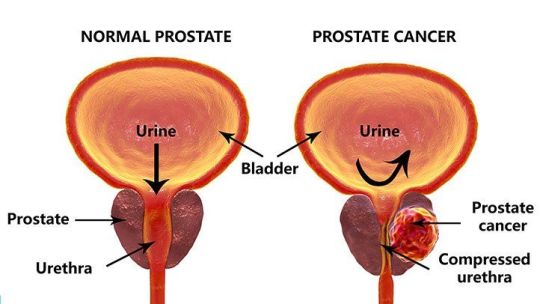
Symptoms
In its early stages, prostate cancer may not show any symptoms at all.
More advanced prostate cancer may exhibit symptoms and signs like:
Trouble urinating
Decreased force in the stream of urine
Blood in the urine
Blood in the semen
Bone pain
Losing weight without trying
Erectile dysfunction
Causes
It's not properly clear what causes prostate cancer.
Prostate cells change their deoxyribonucleic acid (DNA)
which is how doctors know prostate cancer starts. The instructions that inform a cell what to do are encoded in its deoxyribonucleic acid (DNA)
The adjustments instruct the cells to multiply and develop faster than usual. When other cells perish, the aberrant cells continue to exist.
The aberrant cells build up into a tumour, which can spread to invade adjacent tissue. Over time, certain aberrant cells may separate and "metastasize" (spread to other areas of the body).
0 notes
Text
भोपाल के बेस्ट किडनी विशेषज्ञ डॉक्टर

नॉर्थ ज़ोन यूरोलॉजिकल सोसाइटी इंडिया के सदस्य, डॉ संतोष अग्रवाल भोपाल के सर्वश्रेष्ठ किडनी विशेषज्ञ डॉक्टरों में से एक हैं। वह गुर्दे की बीमारियों से संबंधित विश्व स्तरीय उपचार और सेवाएं प्रदान करता है। वह भोपाल में गुर्दे के सभी उपचारों के विशेषज्ञ हैं। शीर्ष गुर्दा विशेषज्ञ चिकित्सक डॉ. संतोष अग्रवाल के साथ अपॉइंटमेंट बुक करें। भोपाल में उनका 150 से अधिक किडनी प्रत्यारोपण किया गया है।
0 notes
Text
Best Urologist Bhopal

Dr. Santosh Agrawal is a well-known Urologist in Bhopal, if you are looking for the best urologist in Bhopal then must fix an appointment with Dr. Santosh Agrawal to get the best treatments and Experience the most comprehensive urologist services. He offer Robotic Urology Surgery in Bhopal. Dr. Santosh Agrawal has 15 years of experience in treating urological diseases in Bhopal. He was fortunate to have extensive hands-on experience in robotic surgeries at Bansal Hospital Bhopal.
0 notes
Text
Nephrologist In Bhopal

Dr. Santosh Agrawal is the best nephrologist in Bhopal who is Very supportive and understands the need of the patient very well. As one of the leading Nephrology in Bhopal, he is well–experienced in all aspects of general Nephrology. he treats all kidney diseases with utmost dedication. It gives comprehensive Nephrology care to her patient. He has been associated with various prestigious hospitals. he is providing comprehensive diagnostic and treatment services in several areas of Nephrology and Urology in Bhopal. he is highly proficient in emergency care for nephrology, kidney stones, kidney dialysis, and kidney transplant.
0 notes
Text
Kidney Specialist Bhopal
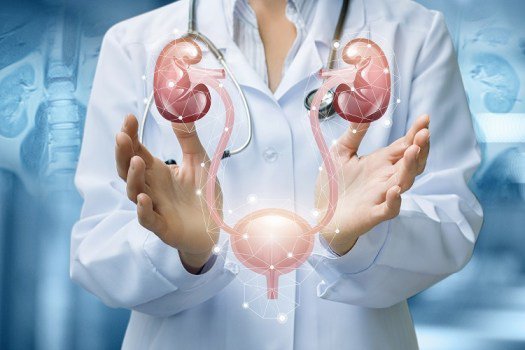
Dr. Santosh Agrawal is one of the best Kidney Specialist in Bhopal with 15 years of experience and expertise in Kidney Stone Treatment,treatment of Kidney Transplant.he is currently worked Head od Department and Chief Kidney Transplant Surgeon at Bansal Hospital Bhopal. he is First in MP to perform laparoscopic kidney removal for kidney transplant.Dr. Santosh Agrawal is the Member of Indian Medical Association. Book an appointment with us to consult our best Kidney specialist Dr. Santosh Agrawal.
0 notes
Text
Kidney Stone Surgeon Near Me Bhopal
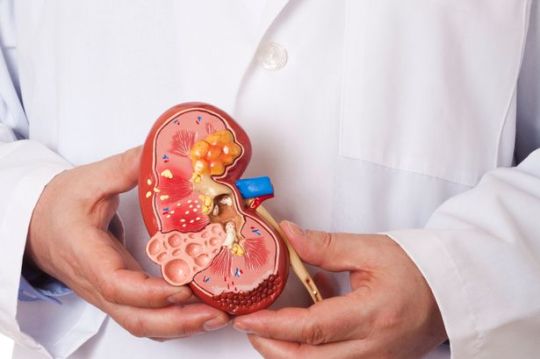
Are you searching the best Kidney stone surgeon near you then you are at right destination meet our Kidney stone surgeon Dr. Santosh Agrawal who is the best Kidney stone surgeon in bhopal. Dr. Santosh Agrawal provides a knowledgeable, experienced approach to kidney stone removal. Contact best Urologist Dr. Santosh Agrawal to schedule an appointment at the location nearest you.
0 notes
Text
Kidney Transplant Bhopal

Dr. Santosh Agrawal is one of the best kidney transplant doctor in bhopal that provides world-class kidney transplant facilities and perform kidney transplant surgery at an affordable cost.His expertise lies in the treatment of Kidney Transplant, Kidney Stone Treatment,Kidney Failure Treatment. He is the Head of Department and Chief Kidney Transplant Surgeon at Bansal Hospital Bhopal.he is Performed more than 150 Kidney Transplant.This procedure takes a healthy kidney from a deceased or living donor and transplants it into a patient whose kidneys have failed.
0 notes
Text
Kidney Stone Surgeon Bhopal
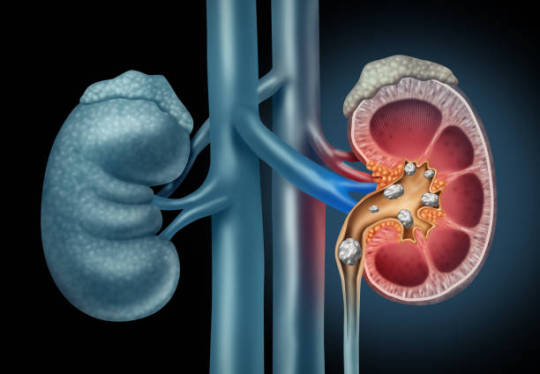
Are you seeking the best Kidney stone surgeon in Bhopal? Dr. Santosh Agrawal is the best urologist and kidney transplant surgeon in Bhopal. He has Experienced more than 10000 endoscopic laser surgeries for kidney stones and prostate disease. Kidney stone surgery is performed to remove the stone from the kidney by the best kidney stone specialist. People suffering through stones related problems are suggested with the surgery. But this surgery is only suggested under the treatment of the best specialties surgeon in Bhopal. Dr. Santosh Agrawal provides the best treatment to remove stones from the kidney.
0 notes